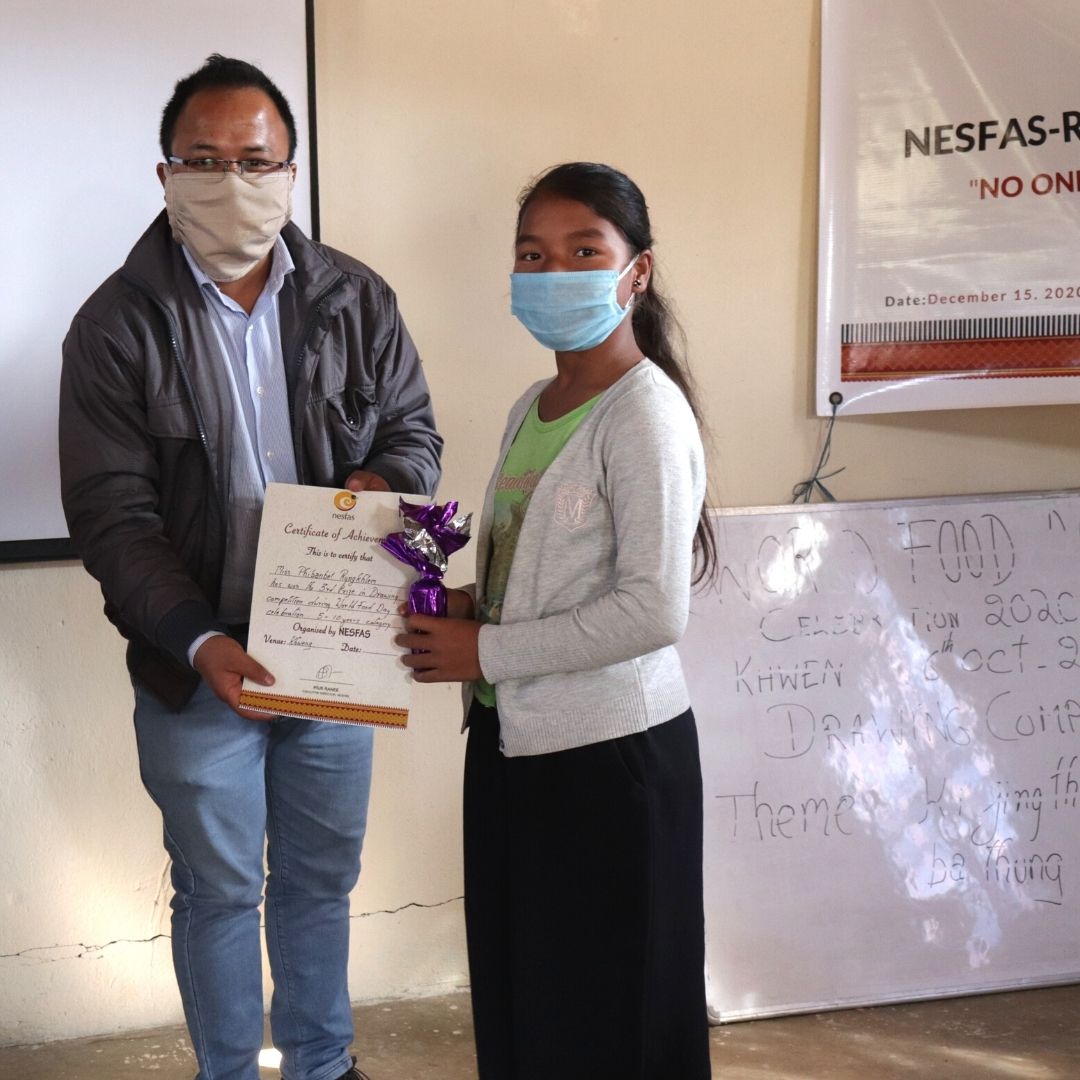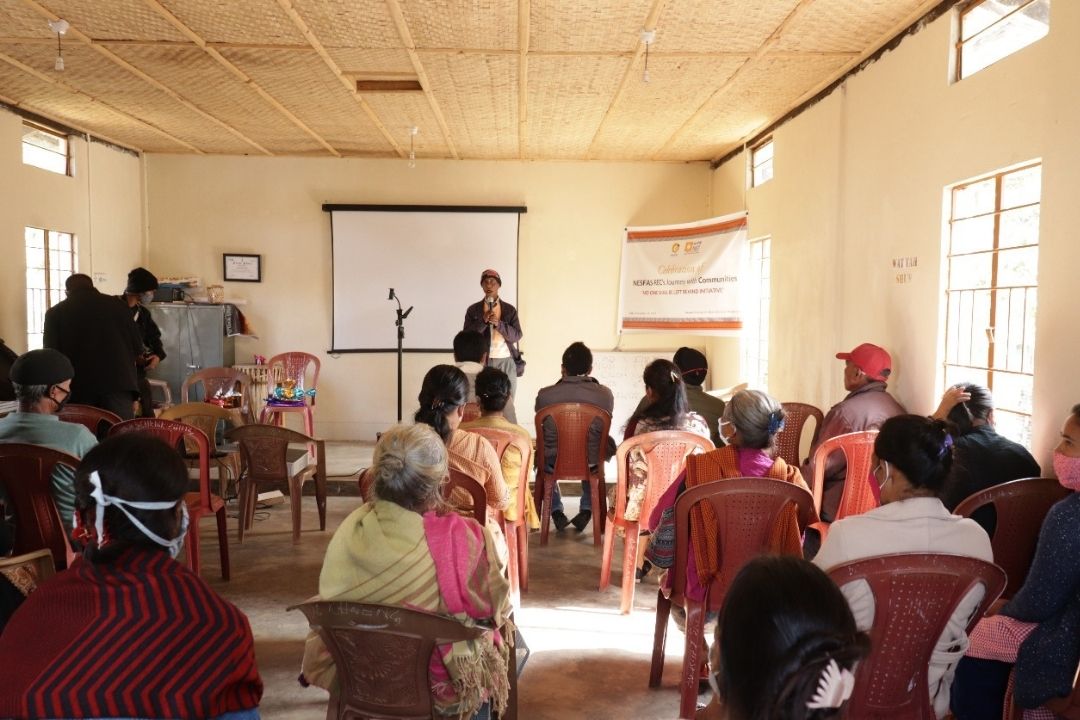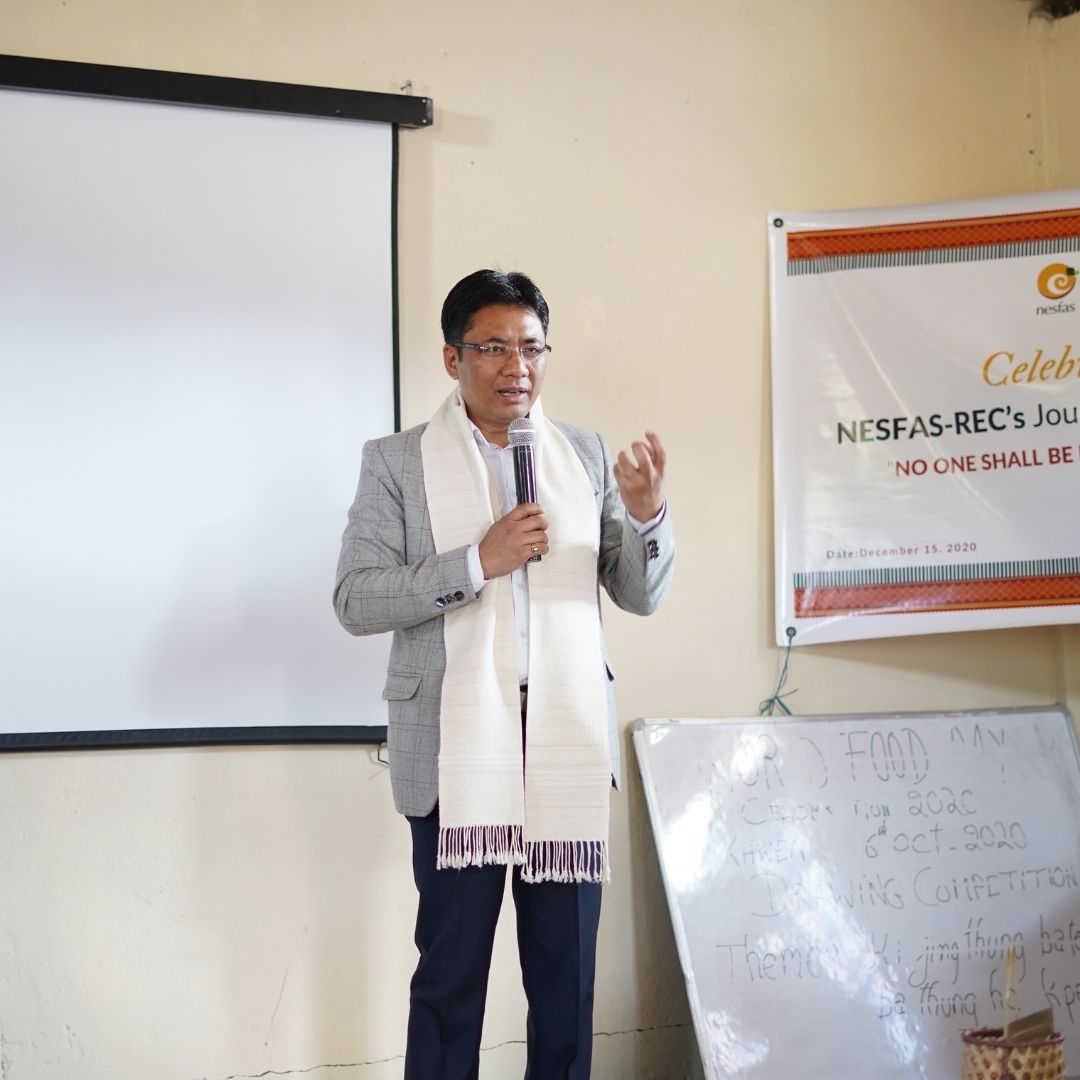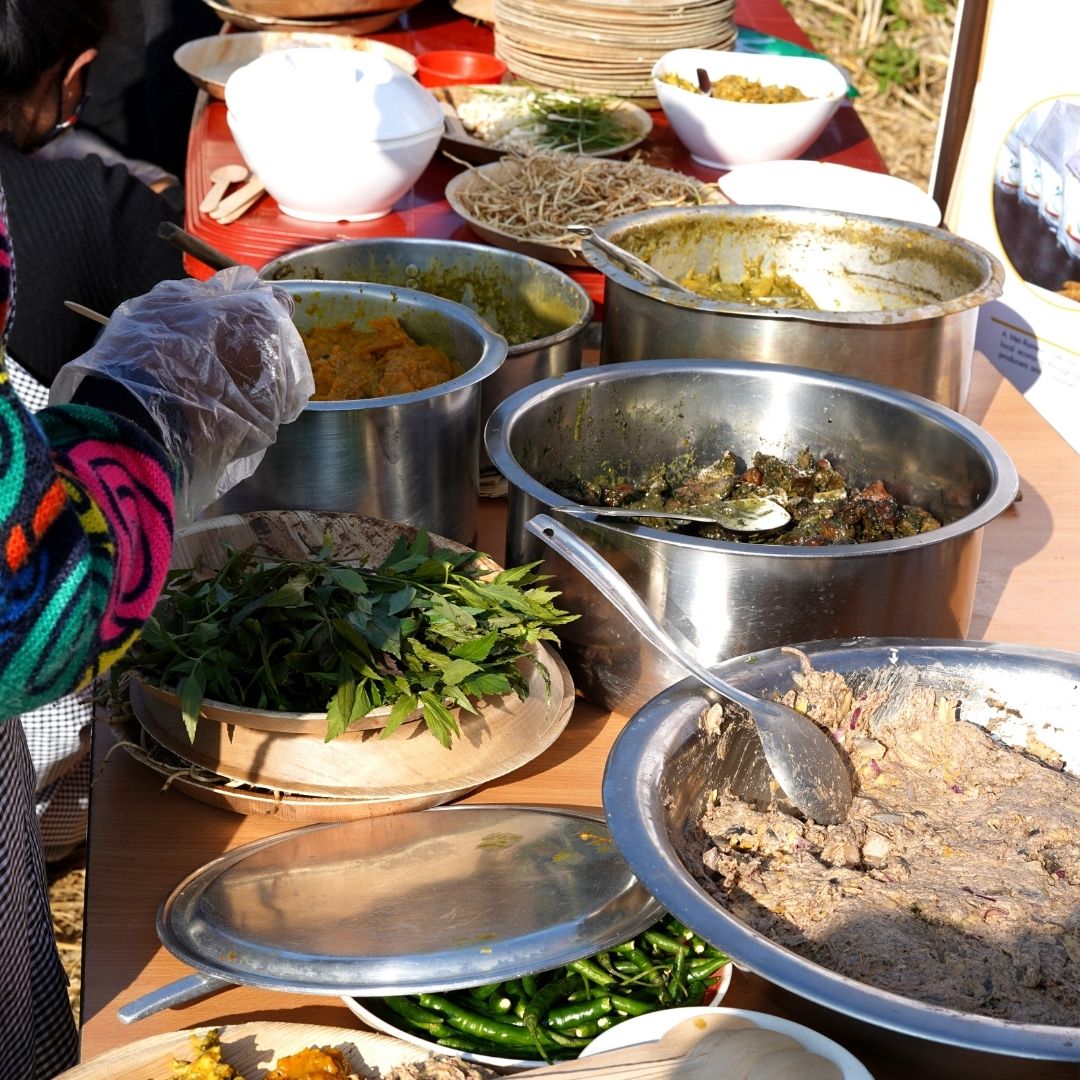Under the current Rural Electrification Corporation Foundation (REC) funded project “No One Shall Be Left Behind Initiative”, the North East Slow Food and Agrobiodiversity (NESFAS) has the goal of promoting indigenous food systems that will significantly contribute to improved nutrition, food security, and sustainable livelihoods. To celebrate and strengthen this partnership, NESFAS along with the community members of Khweng, Bhoi Rymbong Block, Ri Bhoi District, organized a special event on Tuesday (December 15, 2020) — The NESFAS-REC’s Journey with Communities — to acknowledge the project’s contribution in enhancing their well-being.
It may be mentioned here that since the COVID-19 pandemic outbreak, this is the first event that NESFAS has hosted this year while strictly adhering to all government SOPs and safety protocols.
Umroi MLA George B Lyngdoh graced the occasion as the chief guest and inaugurated the Farm-On-Wheels (FOW) initiative of the Liarsluid Participatory Guarantee System (PGS) group. The FOW is a project in which farmers sell their produce at their doorstep and people will not require visiting the crowded vegetable market, as they can shop right where they live. The initiative is considered timely as the country is encouraging social distancing to prevent the spread of the COVID-19 pandemic.
Lyngdoh said, “This is the first time that I am here with the NESFAS team but their works have always reflected in some of our communities here in Ri-Bhoi. I am very impressed and proud to see that they have worked on so many campaigns with regards to consumption and production of traditional foods, helping the community members with livelihood projects and even in the field of innovations.” He added, “We are all aware of the abundance of resources around us and this is a good example of using our local resources without devastating Mother Nature. It is a must to preserve these indigenous farming practices as they are sustainable and have room for longevity.”
NESFAS field coordinator of the area, Naphishisha Nongsiej, presented all the works that NESFAS has initiated during the three-year ongoing REC-funded ‘No One Shall Be Left Behind Initiative’. All the achievements and on-going projects were presented to all the community members and guests who attended the programme.
Armstrong Mawphiang, headman of Khweng, who was also present during the event said, “I am grateful for all the support that NESFAS has given us throughout my tenure as the headman. We have received help with our community halls, built a water tank, and have hosted different pieces of training for our youth, so they can stand on their own feet.” He further stated that the involvement of NESFAS in the community has brought a lot of changes to the people’s mindset when it comes to food consumption and livelihood initiatives.
Lyngdoh along with NESFAS Executive Director Pius Ranee and Senior Associate (Livelihoods) Janak Preet Singh distributed certificates and prizes to the winners of the drawing competition for children held on World Food Day (October 16, 2020). They also distributed certificates to the participants of the three-month Eri-Weaves Training programme that concluded on December 4, 2020, at the community itself.

NESFAS Executive Director, Mr Pius Ranee distributing certificates to the children who participated in the recently concluded World Food Day celebration held at the community
The team also screened a video on the importance of wild edibles that are found in the nearby areas. The video was shot and edited by a participatory video participant of NESFAS Bantei Syiem, who is also a community member of Khweng. The team also screened another video highlighting a value-addition training held at the community a few days ago.
On the other hand, Pius Ranee thanked local MLA George B Lyngdoh for being a part of the programme and then spoke about the importance of the need to preserve one’s traditional knowledge and indigenous food systems as they are all a part of food sovereignty and food security. “We faced many challenges when we first visited Khweng to initiate the collaboration with NESFAS, especially when it came to propagating the awareness programmes. However, with the help of the community members here, I can now see the changes in the community and I strongly believe that Khweng is a model community for all the other communities in the area.”
The programme concluded with a community feast that was prepared by Mei-Ramew Café owners Dial Muktieh and Plantina Mujai respectively. The highlight of the food was the mushroom jadoh, chicken with black sesame seeds, banana stem salad with perilla seeds, gooseberry juice, and rosella juice.
 Translate
Translate







